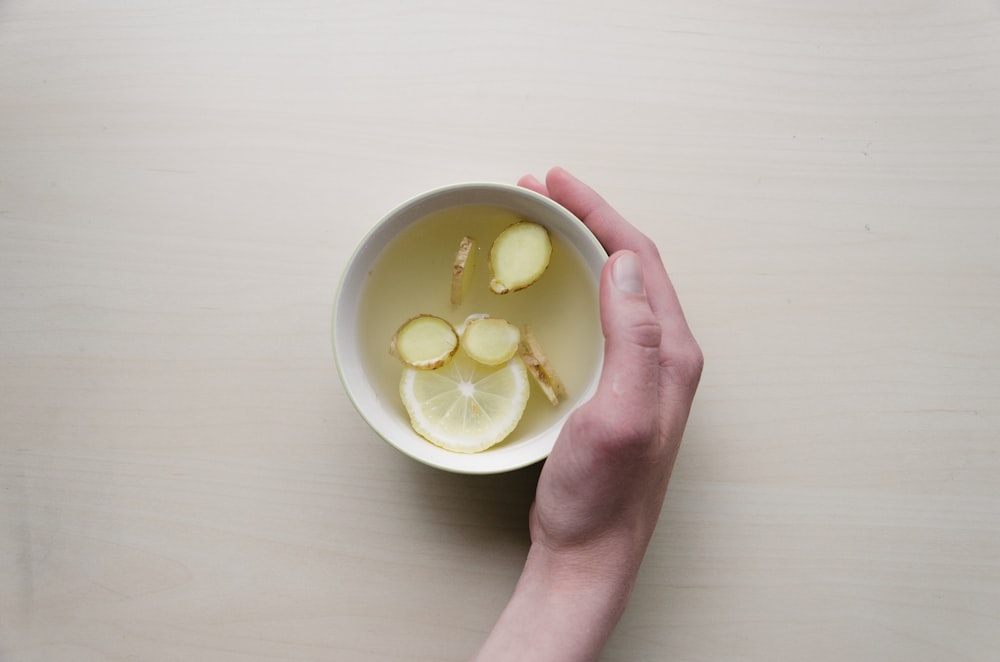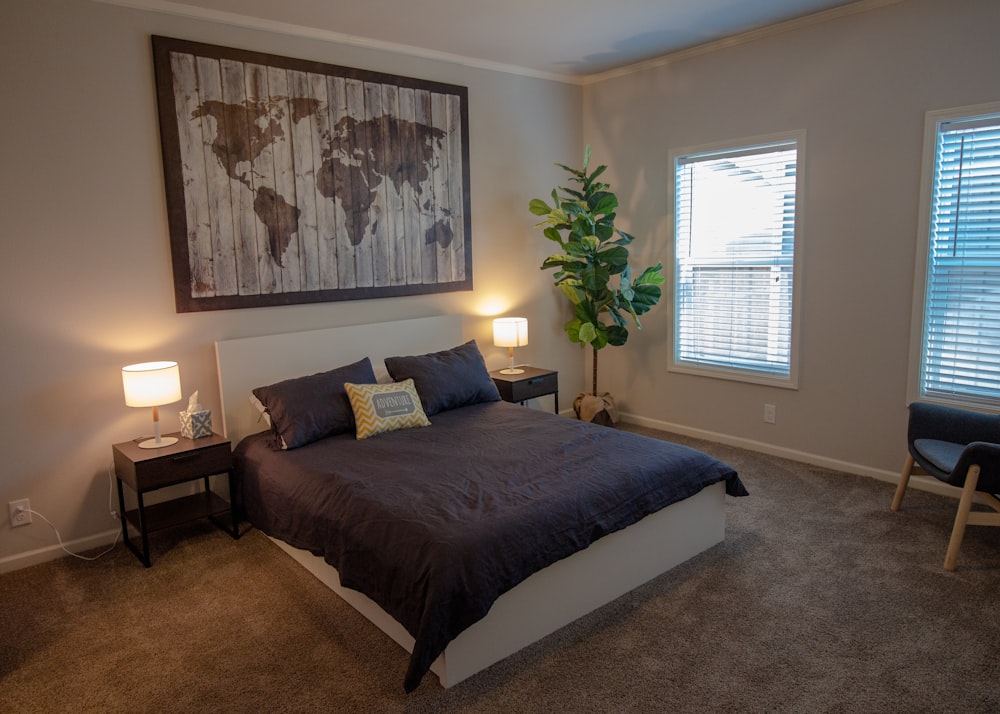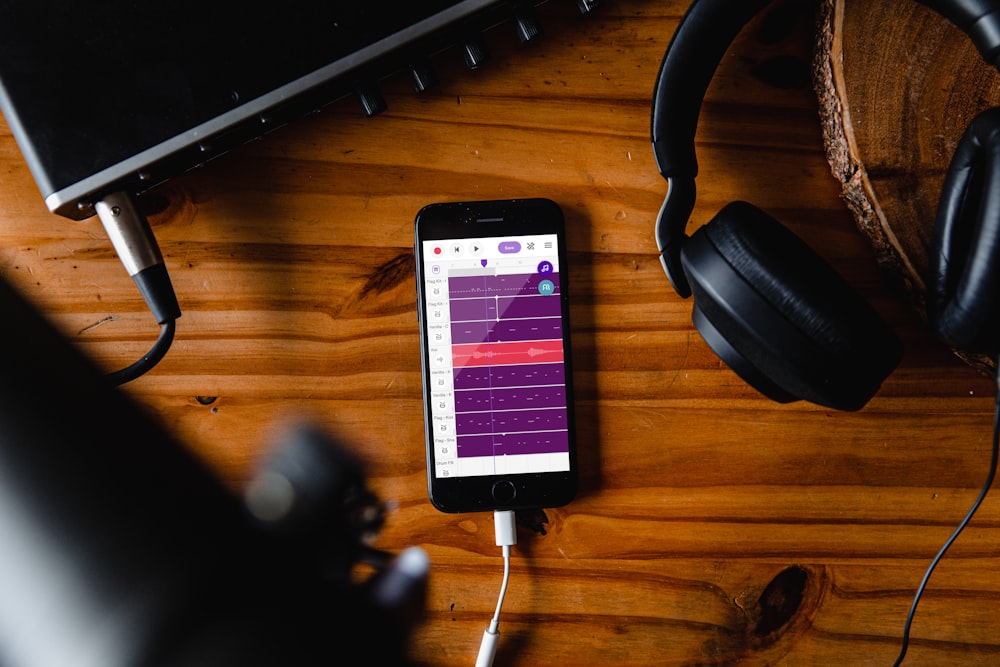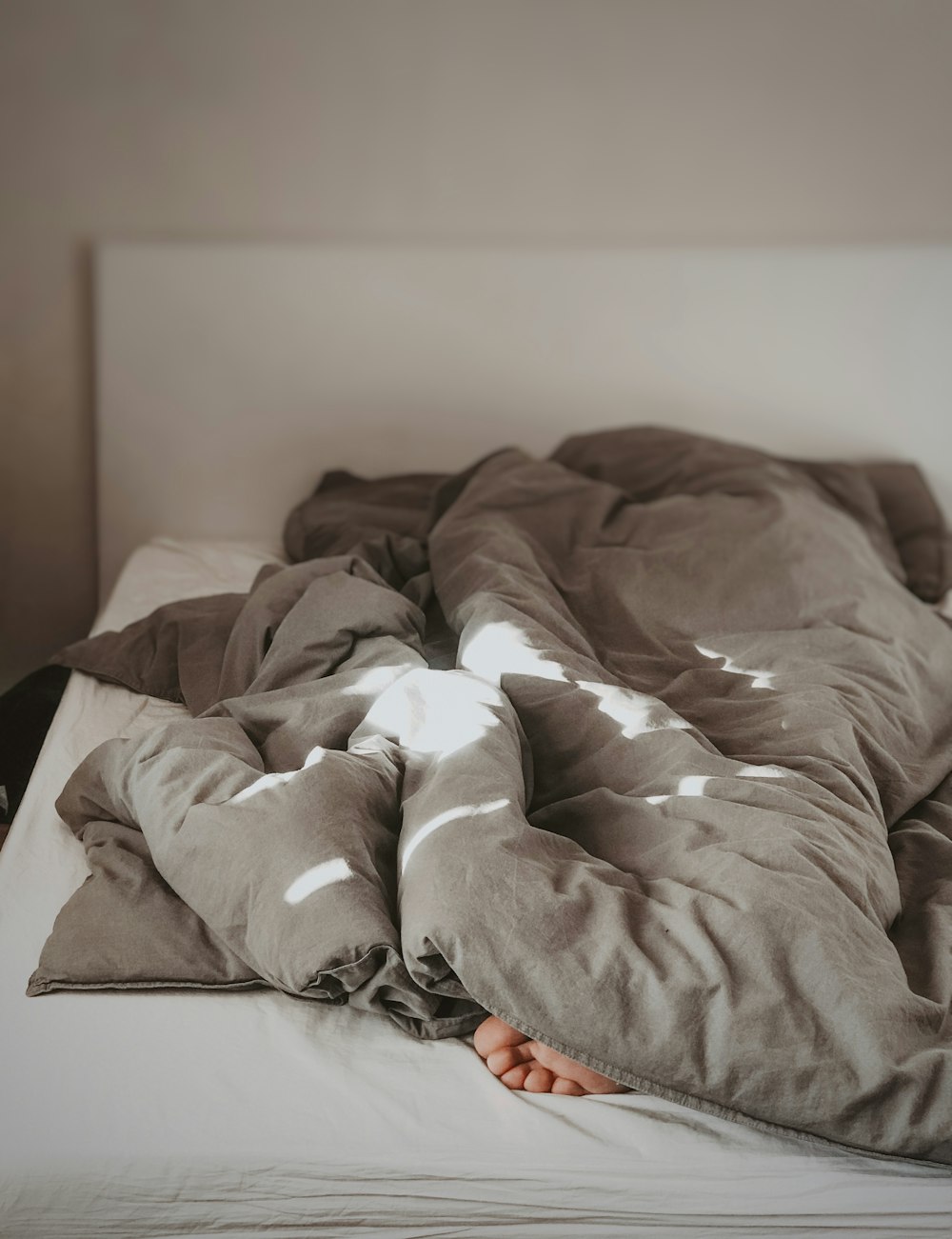How to have a Restful and Deep Sleep to Remain Fit and Healthy

It is a well-known fact that when you are in your 40s, it can be harder to have a good night's sleep. You may have experienced restless nights if not due to snoring from the person next to you. Maybe even that morning headache is not enough incentive to make it out of bed and start your day with enthusiasm. The worst part about getting older is that sometimes we just don't feel as rested as when we were younger. But this blog post will show you some tips on how to get a night of restful sleep so that you can remain fit and healthy!
The importance of a good night's sleep
Getting enough sleep is a necessity for your well-being. You need to sleep for up to 8 hours of deep sleep to rejuvenate and re-energize you so that you can be productive throughout the day! Do not neglect the importance of getting a good night's rest. We sometimes think that we are okay with just 4 or 5 hours of sleep, but this is actually a big mistake. When you wake up after sleeping less than what you should have, you tend to feel more tired and lazy throughout the day!
The sleep-wake cycle
Generally speaking, our brains have already mapped out a schedule for us depending on what time we usually go to bed until when we wake up just to fall asleep at a particular time.
But when our sleep-wake cycle is affected by sound, light and other disturbances, we cannot help but have a difficult time falling asleep fast and sleeping well…
Tips for getting better and restful sleep at any age
In order for us to feel fresh and energized, we need at least 6-8 hours of quality sleep every night. And in order for us to achieve that, here are some tips on how:
Make your bedroom comfortable and dark.
Although there are many factors that affect the quality of your sleep (such as stress or lack of exercise), the most common — and easiest to control — factor is what you do just before going to bed. And this article discusses how exposure to light can affect your body's Circadian Rhythm and disrupt your sleep in general.
A recent study revealed that people exposed to room lights from sunset until they go to bed tend to wake up later than those who keep their bedrooms dark before they go to bed. Scientists have concluded that exposure to light in the evening delays the Circadian Rhythm, and that's why they wake up later than people who sleep in a completely dark room.
So what does this mean? Why should we bother about exposure to light before going to bed? Well, first of all, it means that you are disrupting your system's natural clock if exposed to light at night. Despite what modern medicine tries to prove, darkness is not just an absence of light, but its presence actually triggers many biological processes, including Circadian Rhythms. This makes perfect sense as our history has been shaped by darkness and light more than any other factor. The lack of exposure to bright lights during the night (especially artificial ones) allowed us, humans, to wake up with the sun and go into deepest sleep after sunset. This was the case for hundreds of thousands of years, and millions of years before that, and perhaps even more. So light at night is not just a waste of electricity (which we should all be concerned about), but it really goes against our very nature.
Light exposure at night has been shown to alter cortisol levels in the blood, making us feel tired during the day but wired at night! Cortisol is also called "the stress hormone" as its release is part of the body's response to any type of stress - physical or emotional. That's why being exposed to bright lights late into the night will definitely affect your sleep quality and health in general.
So, before you go to sleep, make sure that your room is dark enough because this will help you sleep better. And if it's too hot or cold for you, then do something about it!
Don't eat and drink near bedtime.
If you are very hungry or thirsty before going to sleep, then try eating and drinking a little bit more than what your regular allowance would be. In fact, we should stop having water at least 1 hour before going to sleep so that way we won't wake up in the middle of the night just to take a sip of water! Do some light exercise at least 3 hours before sleeping. It could be anything—sports activities, yoga poses—anything that makes you feel tired but relaxed at the same time.
Don't eat anything too spicy before going to sleep.
Ah, spicy foods! Some of us enjoy the hotness and tastiness of food with a little bit of spice in it. But did you know that spicy foods can cause acidity, heartburn, indigestion, irritable bowel syndrome and other stomach problems, just to name a few? And if too much spicy foods are eaten before sleeping, then the poor tummy would toss and turn all night long!
Aim to reduce your stress level when you're near bedtime.
Stress is normal nowadays. We're surrounded by so many challenges that we may sometimes feel overwhelmed. But if you find yourself feeling tired and stressed at the same time, well then perhaps, it's not enough to just relax. You must add stress busters in your life, such as yoga poses or a meditation session.
Exercise during the day.
Yes, exercise does its magic in helping you get a sound and healing sleep! But do not exercise 3 hours before hitting the hay because you'll get all wound up and most likely will have a hard time falling asleep.
When we exercise, we produce endorphins or what are commonly known as "the feel-good hormones." They give us that relaxed feeling, that sense of elation when we finished a gruelling workout session which makes us sleep in no time!
Read your favourite books or magazines.
Do this only 1 hour before sleeping so you won't be reading half of the night away. Doing this will actually help keep your brain sharp instead of switching off while watching TV in bed!
Go to bed at the same time each night.
Even if it means waking up early than usual, so be it because you need to establish a rhythm within your body, so it'll be easier to get some sleep at night.
Eat healthy food.
Consider eating foods high in magnesium, calcium and potassium. These are the minerals that relax your muscles. Foods to take note of are bananas, dates, green leafy vegetables & milk. Avoid taking too much caffeine before sleeping because it stimulates your brain and gives you energy (the opposite effect of relaxation). A glass of decaffeinated tea or warm milk will do just fine for this job!
Get organized.
Doing this will let your brain know that now is the time to wind down and start clearing up all the clutter in your mind, which allows you to drift off easily. Use a desk diary or planner to plan out when you have activities for tomorrow so you'll be able to mentally switch off easier. Instead of browsing through social media sites or apps on your phone for entertainment, use that time to relax and read instead. Do the same with videos on TV - swap out your usual shows for reading material!
Limit your caffeine intake.
Caffeine will not be beneficial for you if you take it before bedtime! So, avoid having caffeinated beverages. And if possible, do not have any at all. Caffeine is as addicting as nicotine, and some people might say that it's even worse than smoking because of its effect on our bodies.
Both caffeine and cocoa can actually trigger our nervous system to release the hormone cortisol that can make us feel more awake, alive, and alert.
Do some meditation or yoga poses before sleeping.
Don't think about doing them; just imagine what it would be like to do those meditations or poses while you're lying on your bed because this will help you relax and get the feel of it which in turn will allow your mind to easily slip sleep mode naturally — without much effort.
Yoga, meditation, deep-breathing exercises are amazing relaxation techniques that have been proven effective in helping people sleep better. You may not be able to see immediate results overnight, but if you invest in these activities consistently, seeing remarkable improvements should be easy after a month or two, depending on how serious you take your personal fitness regimen and what kind of lifestyle changes you implement to improve your sleeping patterns.
Our bodies have an internal clock, which determines when we are awake and asleep. Called the circadian rhythm, this internal clock is affected by daylight and nighttime darkness (this means that helping your body regulate its natural sleep-wake cycle is as easy as controlling exposure to sunlight).
The Circadian Rhythm is mostly controlled by Melatonin — a hormone secreted in the brain and eyes. This hormone rises at about 9:00 p.m., peaks in the middle of the night and decreases after about 8 hours, but low levels of it will keep you awake even though you feel like sleeping so much!
Try to lower your room temperature.
Reduce the temperature of your room by a few notches lower than usual since being colder might help you sleep better. Being too cold or having the A/C on high will make it difficult for you to feel relaxed and fall asleep fast, so consider getting another blanket or just adjust the temperature of your thermostat and try it out.
Drink alkaline water your body during sleeping hours.
This means drinking alkaline water, which balances our body's pH level while we're asleep, instead of drinking acidic water that can disrupt our biorhythm while we're sleeping.
Get a better mattress that suits your needs.
You might not think much of getting a new one, but if you try it out for once, especially if you sleep on the side or back, you'll know and feel how comfortable it is by yourself and be amazed at the changes! It's guaranteed to have an effect on your sleeping pattern, so you don't want to miss this chance. Try finding latex mattresses that are made from organic materials with little to no springs, which can also help promote better blood circulation in your body when you sleep on it. You could even find adjustable beds these days, which may help improve your sleep apnea and other medical conditions as well.
If you're going to get a memory foam mattress, try and stay away from the ones which come with very thin layers of this material or else it will really flatten out over time. For that reason, you may want to consider getting a plush pillow top mattress instead. These are generally thicker than average mattresses anyway, so they might still offer enough support, but at the same time, they won't go flat because of their pillow-top construction.
Get pillows that support your sleeping position.
There are also foam pillows that might help you if traditional feather pillows tend not to work out very well for you. These types of pillows will mould and contour around the neck area better than most because they are made with memory foam.
Make sure you get a pillow that doesn't go flat. You'll be waking up with a stiff neck if the pillow loses its support. The last thing you need is to wake up feeling like somebody punched you in the throat when all you want is to have a good night's rest!
For people who don't like sleeping with too many pillows, it might be better to stick to one rather than using two, which can put pressure on your neck and spine as well. If possible, also make sure that you get yourself some high-quality sheets because they will keep your body cool.
What are the benefits of sleeping well?
Besides not feeling tired during the day, there are many benefits to getting adequate sleep each night. Some of these benefits include a better immune system, increased energy levels, better memory & focus, higher productivity, improved quality of life, lower stress levels, and decreased likelihood of getting sick.
What happens when you don't get enough sleep - health problems, weight gain, moodiness
Now, what happens when we don't get restful sleep? When we don't get enough sleep, our bodies go into a state of stress. This is because a lack of sleep activates the nervous system, releasing hormones that cause stress to our bodies. When this happens, it will also result in something called cortisol or, as most people call it – the stress hormone. In short, when you don't get enough sleep, and your body overproduces cortisol, you won't feel refreshed and can even gain weight from this extra fat instead of muscles.
Another thing that may happen if you continue not getting enough restful sleep is the buildup of toxins in your body which will lead to negative effects on your health, such as high blood pressure. Also, since depression has been found to be directly related to lack of sleep, it is best to get more sleep and have a good mood throughout the day.
Resources to help with your search for healthy sleep habits in your 40s (apps, supplements)
Here are some resources that might be useful for you to find a good sleep habit that will work for your body since every person is different.
Sound apps
Gadgets like mobile phones won't help if you stare at your screens for too long. With this in mind, you might want to invest in some apps that emit soothing sounds like rain and birds chirping instead. There are also apps that have tracks from the natural world and will help you get into a state of relaxation.
Find an app that can be useful. Something that can provide different sounds such as rain, thunderstorm, ocean waves, or anything that can calm you down and help you sleep. They're all very atmospheric and relaxing. You can use it before you sleep or when you feel stressed out few hours before bedtime.
Since there's no excuse nowadays not having an app on your phone since most people carry their phones everywhere they go, there's no reason you can't have all the apps on your phone.
Or you can also use it as a way to jump-start your meditation sessions. There are times when we're so stressed out that even thinking about meditating becomes confusing, but if you play an app with rain and other soothing sounds, it will gradually lead to clearing of thoughts and focus yourself on just relaxing.
Just make sure to set a timer before going to sleep so you won't stay up late than intended or let the music play for longer than is safe to do so. Some people tend to fall asleep when they hear certain types of music, which is why this method might work for them too.
Recipe for a good night's sleep
How about some sleep-inducing recipe before going to bed? Here's one of my favourites:
Milk and honey drink
- 1 cup of milk
- 2 tablespoons of honey
- 3 cups of water
- 1 teaspoon nutmeg (optional)
Other ingredients such as cinnamon and vanilla extract can be included too! Just strain the mixture after boiling everything in a pot for about 5 minutes. Then drink this soothing tea while it's still and enjoy every sip! This mixture is also perfect for the winter.
Ginger lemon tea
- 1 cup of warm water
- fresh ginger slices (optional)
- lemon juice to taste
- honey or sugar, if desired
This combination is just one of the most effective natural cures for insomnia. Even though it has a strong flavour and aroma, you will get used to it after the first few sips. This drink can even help boost your immune system and reduce hypertension.

All you need to do is take a slice of peeled fresh ginger and put it in a cup of boiling water with some lemon juice. Then add honey or sugar to taste before drinking this tea as your bedtime drink. Of course, if you love strong flavours, you can skip the teaspoon of sweetener!
Supplements that can help you get a restful night's sleep.
Okay, you've tried some recommendations like listening to music, making your bedroom comfortable, and yet you can't fall asleep or stay asleep. If this is your concern, it's time to take a look at some supplements that can help you get a restful night's sleep.
Z-tox Premier Supplement
Z-tox premier supplement is one of the best supplements that have helped me stay asleep throughout the night and wake up refreshed. These capsules are a combination of natural ingredients known for centuries that work together to promote healthy sleep patterns, deep and restful sleep, increased energy levels and performance during the day and also support long-term healthy weight maintenance.

Some of the key ingredients in Z-tox premier include L-Tryptophan, which has been scientifically studied to promote healthy serotonin levels in your brain so that you will get more benefit from your peaceful bedtime routine. Calcium (as Calcium Carbonate) is another great ingredient for maintaining healthy sleep. Calcium helps protect your bones and teeth, strengthens muscles and maintains heart rhythm. Vitamin B6 (Pyridoxine HCl) is also included in these capsules, which naturally supports the body's natural sleep patterns. It is a cofactor in the synthesis of neurotransmitters called serotonin and melatonin; these are responsible for your overall mood, well-being, relaxation and sleep cycle.
Finally, Melatonin, which has been clinically studied to promote restful sleep. This ingredient helps maintain your schedule for a healthy sleep/wake cycle.
Other ingredients include Magnesium, L-Tryptophan, Goji berry, Chamomile flower, Lemon Balm (aerial), Passionflower, L-Taurine, Hops flower, St. John's Wort (aerial), Gamma-aminobutyric acid, Skullcap root, L-Theanine, Ashwagandha root, Inositol, 5-HTP seed.
Z-tox premier supplement will help you get a good night's sleep to maintain your health and fitness well into your 40s and beyond. Try them today after consulting with your family doctor.
We hope you get a good night's sleep!
There is hope for everything, including getting enough sleep. If you have difficulty sleeping and found this article helpful, don't forget to share this article with your friends and family.







